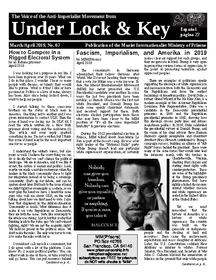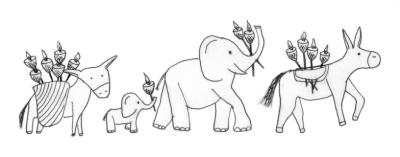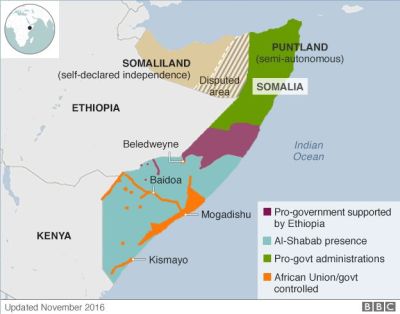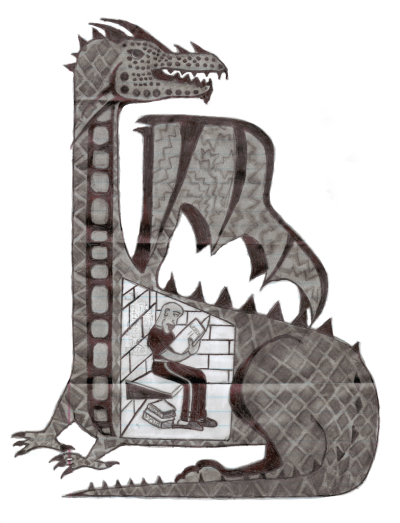
Economic Update: Amerikkkans Prospering in 2019
The u.$. economy has succeeded in stabilizing itself, at least for the near future. As reported previously (1,2), the majority of amerikans are prospering; their pockets lined with the bribes of imperialism, the labor aristocrats of the united $nakes are unlikely to support genuine socialism any time soon.
In 2007, amerika faced an economic downturn. Excessive lending allowing amerikans to buy overvalued houses, which led banks to the point of collapse when debts could not be repaid. As the effects of the crisis spread, stocks fell, jobs were lost and the economy began to contract. The financial crisis has been rightly recognized as the worst to affect the First World since the Great Depression. However, it has also been rightly recognized as being of lesser severity, earning it the moniker the Great Recession.
And since then? The state of the amerikan economy has been not that of crisis but of recovery. Unemployment peaked in October 2009 at 10.0%. After that, it steadily declined. In early 2019, almost a decade later, unemployment now sits at 4.0%. In fact, by this measure the u.$. economy is doing better than ever. Monthly unemployment figures in 2006, before the crisis, were around 4.5%, 4.4% at the lowest. In 2018, they were around 4.0%, with the highest being 4.1% in the beginning of the year.(3) Labor force participation has decreased 2% since October 2009, but is at an average value over the last 65 years.(4) Another indicator of economic prosperity, the Dow Jones Industrial Average, has grown over the past five years, surpassing 25,000 points and setting 15 all-time record highs in 2018.(5) The bull market does not just enrich a few bourgeoisie: with 55% of amerikans owning stocks, the majority of the u.$. population is petty-bourgeois and benefits from rising stock market. (6)
In 2017, Amerikans spent, on average, more than five hours a day pursuing leisure, a number essentially constant over the preceding decade.(7) Between 2009 and 2018, average wages increased by 23%, faster than the rate of inflation.(8,9) As 2018 drew to a close, the average hourly wage in amerika was $27.53 (median hourly wages have seen similar steady increases to just over $23).
Contrast this state of affairs with China, where the hourly wage in 2016, adjusted for purchasing power parity, was $6.39. Or India where it is $3.10.(10) In China, hourly pay is less than a quarter of that in the u.$. In India, it is less than an eighth. It is clear that this wage disparity can only exist because amerikans benefit from the exploited surplus value of Third World labor.(11) So-called socialist groups in amerika “fight for 15,” ignoring both the low wages paid in other parts of the world and the fact that many workers inside u.$. borders are, by virtue of nationalist immigration policies designed to preserve amerikkkan wealth, considered “illegal” and unable to benefit from a higher minimum wage.
Despite the fact that the numbers above have been adjusted for inflation and geographical differences in purchasing power let’s entertain the supposition that some aspect of the cost of living has not been accounted for and that amerikan workers are still being exploited. If amerikans were truly being exploited, then they would have little to no property or wealth of their own. However, 64% of amerikans own a home, about the same as in the mid 1990s.(12) This number is fairly stable; since the 1960s, homeownership rates have fluctuated in a fairly narrow range, peaking close to 70% in 2004 and never falling below 62.9% since 1964.(13) In 2018, the average u.$. home had an asking price of over $200,000.(14) Many amerikans own their homes outright, while others may have a mortgage and look forward to outright ownership in the future. An amerikan with a 30-year mortgage, for example, expects that they will pay off their home in 30 years and enjoy a comfortable retirement in it. Ignoring issues of credit, interest and down payment that would automatically exclude Third World workers, a Chinese worker attempting to buy the same house with a quarter of the income would need to spread out payments over 120 years, while an Indian worker would need to labor for literal centuries. The average amerikan dwelling, leaving out furniture, cars and other luxuries, already represents a greater accumulation of wealth than the typical Third World worker could make in eir lifetime.
And it is not a question of a vast economic divide within the U.$. Even among amerikans with an income below the national median, over half owned a home in 2018.(15) The majority of amerikans are therefore in possession of considerable wealth, which they invest in assets and spend on plush accommodations. The typical amerikan acts more like a member of the bourgeoisie than of the proletariat.
There remain significant economic differences between the wealth of whites and the wealth of New Afrikans and Chican@s within U.$. borders. But even with that disparity, the vast majority of U.$. citizens are profiting from the exploitation of the Third World, giving them a solid economic interest in imperialism. In a future article we will provide an update on the economic status of oppressed nations within U.$. borders.
A Boom in False Consciousness
In the bourgeois media we’ve seen a recent uptick in pieces examining the growing generational divide. Older commentators bemoan the laziness and entitlement of millennial (born in 1981-1996), while younger commentators decry the indulgence and thoughtlessness of baby boomers (born 1946-1964) who have depleted the Earth’s resources and left no economic opportunities for future generations. The former is the typical “kids these days” grousing. Disproving the latter: homeownership among people aged 35 and under has gone from 64.0% in 1994 to 64.4% in 2018.(16) In other words, economic opportunity has actually increased for younger amerikans. Millennial wealth has more than doubled since 2007, with the other generations seeing either a net increase in wealth or a partial recovery in the value of their sizable assets since the financial crisis.(17)
Any discussion of a generational gap in economic opportunity is false consciousness. Nothing could underscore this point further than the fact that any generational disparity in wealth will be rendered moot when the millennial children of bourgeois boomers receive their inheritances. In fact, it will not even take that long. Just as aristocratic scions of yore could remain resident in the family manor, or plantation, and not have to worry about actually working for a living, young “professionals” (i.e. those tasked with administrating the parasitic U.$. economy) can buy large homes in expensive metropolitan areas because they receive financial assistance from their parents.(18)
Amerikans, as a whole, enjoy high wages and a comfortable lifestyle not available in the Third World. The majority of amerikans possess considerable wealth in the form of houses and are closer to the petty-bourgeois than the proletariat in their economic position. Because of this economic interest, the Amerikan populace is unlikely to support a genuine communist revolution. Without a solid internationalist perspective, any talk of socialism within amerika will be a phony national “socialism,” at best redistributing from one tier of the labor aristocracy to another and at worst heightening the violence inherent to international superexploitation.





 Download printable PDF
Download printable PDF






